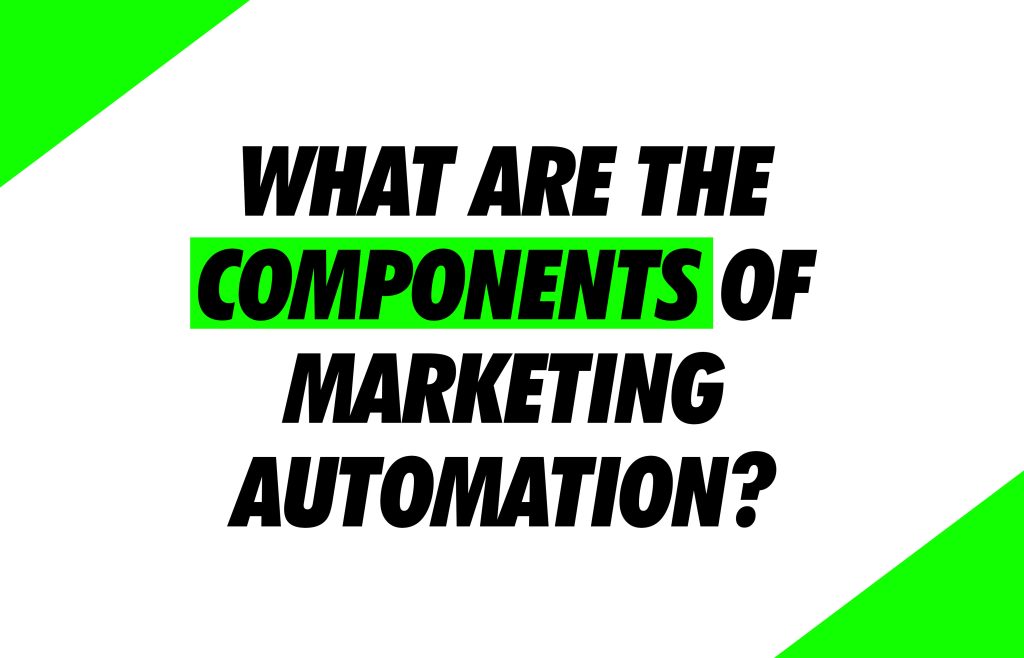Marketing automation has been the foundation in modern strategies for marketing, streamlining procedures and increasing customer interaction. This powerful tool is based on there are many key components that are the driving force behind its effectiveness. This article will go through the various components of marketing automation, and shed the light on the fundamental elements that enable it to work.
Marketing automation Components
1. Customer Relationship Management (CRM) Integration
CRM integration is the foundation for marketing automation. It lets businesses track and analyze data from customers which allows them to create segments and target segments of customers through targeted marketing strategies. Through the integration of CRM systems, businesses can get a comprehensive view of their clients which ensures a personal and consistent experience for customers.
2. Email Marketing Tools
One of the primary elements of automation in marketing is marketing via email. Automated emails can be customized to different customer segments, sending personalized emails, suggestions for product and promotions. Tools for marketing via email offer the platform to create, schedule and monitoring the effectiveness of email marketing campaigns.
3. Leap Capture Management
A successful marketing automation system relies on the generation of leads and their management. Lead capture components like websites, landing pages and forms are essential to capturing important customer data. After leads have been gathered marketing automation systems aid in lead nurturing and guide buyers to the right sales channel.
4. Automated Workflows
Automated workflows are what which drive marketing automation. They are a sequence of actions and triggers that control the way in which the system responds to customer behaviour. Workflows may include actions such as sending emails, altering leads’ scores, or moving leads into different segments based on how they interact with the company.
5. Segmentation Tools
Segmentation refers to the practice of segregating the public into groups based upon characteristics such as behavior, demographics, or other characteristics. Marketing automation tools provide segments that allow businesses to tailor their messages to the appropriate group of people. Segmentation is essential to ensure that messages are personalized and encourage engagement.
6. Personalization Engines
Personalization is the foundation to marketing automation. It engines make use of information to tailor the content, recommendations for products and messages to specific customers. This improves the rate of engagement and conversion because customers are presented with relevant content that matches their preferences and desires.
7. Analytics and Reporting
Marketing automation isn’t complete without the capability to measure and evaluate performance. Analytics tools offer valuable insights on the effectiveness and effectiveness of campaigns. Statistics like rate of open, click-through rate and conversion rates can help companies evaluate their marketing strategies and take decision-based based on data.
8. Multi-Channel Integration
Modern marketing works across a variety of channels, such as social media, email websites, emails, and more. Marketing automation tools support multi-channel integration. This allows companies to provide consistent messages along with experiences at all channels.
9. Scalability
Scalability is a key element to growing companies. Marketing automation solutions must be able to change and grow as business’s needs for marketing evolve. Scalability will ensure that the automation system for marketing is effective even as the company expands.
Conclusion
In the age of digital marketing the marketing automation system is an resource that allows companies to simplify their marketing processes and improve customer engagement and boost growth. These systems play an essential part in lead generation, lead nurturing personalization, segmentation email marketing analytics, integration and scaling.
Utilizing the power of a system for marketing automation companies are able to not only reduce time and resources, but can also create more specific and effective marketing campaigns. In the present competitive world adopting marketing automation is an imperative decision for businesses seeking to stay ahead of the curve and engage with their customers in a meaningful manner.

